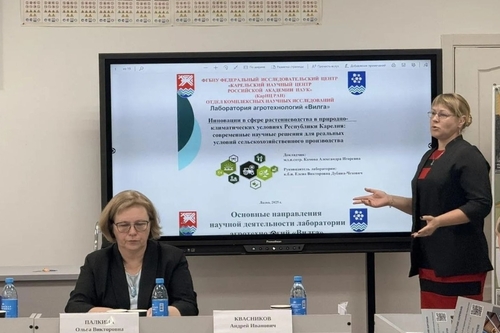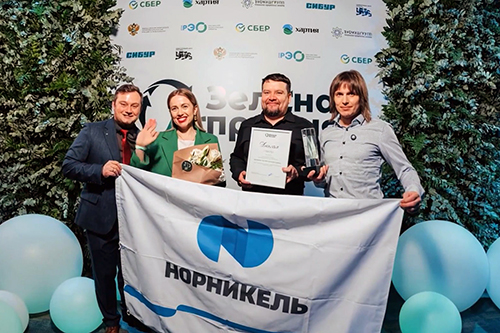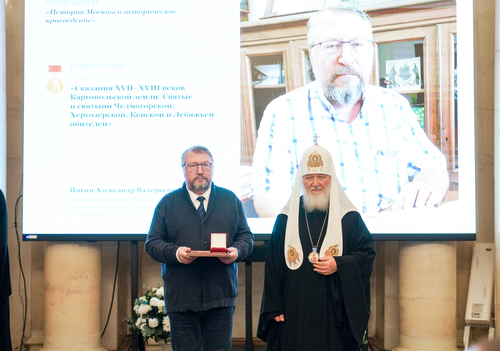Karelian scientists have implemented extensive work to assess the status of the Arctic fox population in the Kola Peninsula. Prior to the fieldwork, they studied the obliterated archival sources from the 1930s for data on the subject, after which several expeditions to the Polar North took place. The results of this study were published in the international journal of Polar Biology.
“Our research revealed the extremely poor state of the Arctic fox population on the Kola Peninsula. According to our estimates, the current population is likely isolated and consists of no more than a few dozen adults”, – the article declares.
The main threat to this Arctic species today is climate change. In many parts of its Eurasian distribution, the southern limit of the Arctic fox range is progressively moving northwards. Because of global warming, Arctic fox is displaced from its traditional habitats by a stronger competitor – red fox. The past decades have also seen a change in the population dynamics of lemmings, which are prey for this Arctic carnivore.
News

May 12, 2021
Scientists from the Karelian Research Centre RAS together with colleagues from Norway and Sweden have been studying the status of the Arctic fox population in the Kola Peninsula. Proceeding from their findings, they argue that large-scale monitoring of this endangered species should be organized on the peninsula, and urgent conservation actions are needed.
See also:

December 8, 2025
Staff of the Vilga Laboratory presented scientific developments in agritech at the year-end 2025 meeting at Agriculture Ministry
Staff of the Vilga Agrotechnology Laboratory of the Department for Multidisciplinary Research KarRC RAS took part in the session “Results of the agricultural season 2025 and plans for 2026” held in the Village of Ladva. They presented the laboratory’s major research areas and scientific developments.
Staff of the Vilga Agrotechnology Laboratory of the Department for Multidisciplinary Research KarRC RAS took part in the session “Results of the agricultural season 2025 and plans for 2026” held in the Village of Ladva. They presented the laboratory’s major research areas and scientific developments.

December 5, 2025
Olga Bakhmet proposed KarRC RAS as the host for the scientific conference on the study of Karelia’s water bodies
Doctor of Biological Sciences Olga Bakhmet took part in a meeting of the Council on Fish and Fisheries Sector Development held in Petrozavodsk on December 2nd. Active participants of the meeting were representatives of the executive and legislative authorities of the Republic of Karelia, scientists, and members of the business community. The meeting focused on prospects for the development of the sector in Karelia, utilization of seaweed resources in the White Sea, increasing production volumes, and introducing new types of products.
Doctor of Biological Sciences Olga Bakhmet took part in a meeting of the Council on Fish and Fisheries Sector Development held in Petrozavodsk on December 2nd. Active participants of the meeting were representatives of the executive and legislative authorities of the Republic of Karelia, scientists, and members of the business community. The meeting focused on prospects for the development of the sector in Karelia, utilization of seaweed resources in the White Sea, increasing production volumes, and introducing new types of products.

December 4, 2025
Project to roll out artificial instream egg incubators wins the Green Prize 2025
The Russian Environmental Operator awarded the winners of the Green Prize 2025. The project recognized as the best in the "Sustainable Practices in the Agricultural Industry" category is "An Integrated Technology with Artificial Nests for Fish Egg Incubation". The devices for the reproduction of young salmonid populations were designed at the Karelian Scientific Center RAS and tested in collaboration with Kola Mining and Metallurgical Company JSC (part of Nornickel). The incubators are being successfully used on rivers in northern Karelia and the Murmansk Region.
The Russian Environmental Operator awarded the winners of the Green Prize 2025. The project recognized as the best in the "Sustainable Practices in the Agricultural Industry" category is "An Integrated Technology with Artificial Nests for Fish Egg Incubation". The devices for the reproduction of young salmonid populations were designed at the Karelian Scientific Center RAS and tested in collaboration with Kola Mining and Metallurgical Company JSC (part of Nornickel). The incubators are being successfully used on rivers in northern Karelia and the Murmansk Region.

December 3, 2025
Literature scholar Alexander Pigin was awarded Makarius’s Prize for his treatise “17th-18th Century Tales of the Kargopol Land”
Leading Researcher of the Institute of Linguistics, Literature and History KarRC RAS Alexander Pigin was awarded The First Prize in Memoriam of Metropolitan Macarius (Bulgakov) of Moscow and Kolomna for his treatise “17th-18th Century Tales of the Kargopol Land. Saints and Sanctities of Chelmogorskaya, Hergozerskaya, Kenskaya and Lebyazhiia Monasteries”. The Macarius Prize is one of the main awards in the humanities in Russia.
Leading Researcher of the Institute of Linguistics, Literature and History KarRC RAS Alexander Pigin was awarded The First Prize in Memoriam of Metropolitan Macarius (Bulgakov) of Moscow and Kolomna for his treatise “17th-18th Century Tales of the Kargopol Land. Saints and Sanctities of Chelmogorskaya, Hergozerskaya, Kenskaya and Lebyazhiia Monasteries”. The Macarius Prize is one of the main awards in the humanities in Russia.



